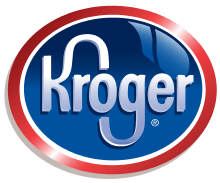Kroger
Interested in selling your Kroger NNN property or Kroger lease property and was wondering what you can get for it in today’s changing market?

Contact us for a complimentary broker opinion of value for your off-market Kroger NNN property for sale or Kroger ground lease property for investment, specifically tailored to support your 1031 exchange requirements. This valuable assessment will provide you with the necessary clarity to make informed decisions regarding the sale of your Kroger NNN property or the inclusion of a Kroger ground lease property in your investment portfolio. As specialists in working with 1031 exchange buyers seeking off-market Kroger properties, we are dedicated to delivering competitive offers with reduced fees to help you maximize your investment returns.
Number of locations
As of January 2023, Kroger has over 2,726 stores in 35 states.
Revenue and income
In 2022 Kroger’s total revenue was $132.5 billion. Net income was $2.8 billion.
Future plans
Kroger plans to expand its physical footprint and online presence. 2023, the company plans to open 100 new stores and remodel 500 existing ones. Kroger is also investing in its e-commerce business, with plans to launch a new mobile app and expand its online product offerings.
Corporate vs. franchise
Kroger stores are all corporate-owned. The company does not franchise its stores.
Additional information Kroger Properties
Kroger was established in Cincinnati, Ohio, by Bernard Kroger in 1883.
The company’s name refers to the Greek word “keros,” meaning “corn.”
Kroger is the leading supermarket chain in the United States.
The company’s most popular products include groceries, pharmacy, and fuel.
Kroger is headquartered in Cincinnati, Ohio.
Kroger History
Kroger traces its roots back to 1883 when Bernard Kroger opened a grocery store in Cincinnati, Ohio. The company has since become the largest supermarket chain in the United States, with over 2,800 stores in 35 states. Kroger operates under various banners, including Kroger, Fred Meyer, Ralphs, and Harris Teeter. The company’s early success was due to its focus on quality products and customer service. Kroger was also one of the first grocery chains to offer self-service checkout, which helped to reduce costs and improve efficiency.
Why Invest in Ground Lease and NNN Lease of Kroger?
1) Kroger NNN Property Investment: Stable income
Kroger, a household name in the grocery retail industry, presents a compelling opportunity for investors seeking stable and reliable income through NNN (Triple Net) property investments. In this discussion, we’ll delve into the various aspects that make Kroger NNN property investments attractive for those looking to secure long-term financial stability.
2) Kroger NNN Property Investment: Established tenant
One of the primary factors that set Kroger NNN property investments apart is the company’s strong financial standing and well-recognized brand. These attributes significantly reduce the risk of potential vacancy or lease default, providing investors with peace of mind and a dependable income stream. Kroger’s reputation as a trusted grocery retailer ensures that it remains a stable and committed tenant, which is crucial for property owners.
3) Kroger NNN Property Investment: Low management responsibility
For investors seeking a more hands-off approach to property ownership, Kroger NNN investments are an excellent choice. Underground and NNN leases, the tenant (Kroger) bears the responsibility for property maintenance and related expenses. This not only streamlines the management of the property but also minimizes the landlord’s involvement in day-to-day operations. As a result, investors can take advantage of owning real estate without dealing with ongoing management and maintenance.
4) Kroger NNN Property Investment: Favorable lease terms
Another key advantage of investing in Kroger NNN properties is their favorable lease terms. Kroger typically enters into long-term leases with built-in rent escalations. This means that investors can anticipate a predictable income stream over the years, with the added potential for rental growth as lease terms progress. Such stability and growth potential make Kroger NNN investments attractive for income-focused investors.
5) Kroger NNN Property Investment: Real estate value
Beyond the immediate income generated from Kroger NNN investments, there is the potential for long-term real estate value appreciation. Kroger strategically locates its stores in high-traffic areas, which can positively impact the property’s overall value. As surrounding communities grow and commercial activity increases, the property’s value may rise, providing investors with the possibility of capital appreciation over time.
Pros and Cons of Kroger Ground Lease and NNN Lease Investment
Pros:
1. Stable income from a well-established brand.
2. Established tenant reduces vacancy and lease default risks.
3. Minimal management responsibility for landlords.
4. Long lease terms provide stability and potential income growth.
Cons:
1. Lease renewal risk when the term expires.
2. Dependency on Kroger’s success and operational challenges.
3. Market saturation and competition affect profitability.
4. Limited control over property decisions.
5. Economic and market risks inherent in real estate investments.
Thorough due diligence and consideration of location, lease terms, tenant strength, and investment strategy are essential. Seek guidance from real estate professionals and financial advisors to align with your goals and risk tolerance.

